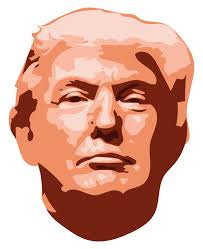The Man in the Mirror
An Appraisal of Donald Trump
By Dino Alonso
Some men hold office, and some men hold attention.
Donald Trump has never been interested in the former—he has mastered the latter.
He is, undeniably, one of the most charismatic political figures of our time. He commands rooms, not with ideas, but with certainty. He does not waver. He does not reflect. He does not retreat. For millions, this is mistaken for strength.
And in a country drowning in self-doubt for decades, a man who pretends not to doubt anything becomes, somehow, a lifeline.
Let us begin with truth, not as we wish it, but as it is.
Donald Trump is not stupid.
He has outmaneuvered political dynasties, media giants, federal prosecutors, and more than one global institution. He has read the American psyche better than many who claim to defend it. He knows its weaknesses: nostalgia, grievance, spectacle, and the desire to be told we are still great, even when we know we are not.
He has given voice to people who felt invisible, challenged institutional stagnation, and exposed the cowardice of career politicians who, when pressed, fold like cheap suits before the altar of polling data.
But charisma without character is a dangerous inheritance.
And power without principle is a loaded gun on a crowded stage.
Trump did not build a movement. He uncovered one.
What followed him—what surrounds him now—is not just a political base, but a congregation. And he, a messiah of wounded pride, speaks not to our better angels, but to the parts of us that would rather blame than build.
He has made resentment a national language.
He has made cruelty an applause line.
Perhaps most dangerously, he has redefined the presidency not as an institution of stewardship but as a platform for performance.
Under Trump, policy becomes impulse. Law becomes theater. Truth becomes negotiable. He governs not from a desk, but from a camera lens—and in doing so, he transforms the citizen from participant to spectator.
And yet—this is not all his doing.
Trump is not an alien force. He is the inevitable product of a nation that forgot how to tell itself the truth.
We tolerated decades of government that spoke in platitudes and did little else. We allowed politics to become choreography. We worshipped the rich without asking what they worshipped in return. We built a culture so allergic to shame that when it finally manifested in a man who had none, we were too numb to notice.
What Trump represents is not simply a political shift.
He is a philosophical rupture.
He does not believe in the idea of the common good.
He believes in winning. And in a system where everything becomes transactional—loyalty, justice, even truth—winning becomes the only moral language left.
But the danger is not just in what he does.
It is in what he teaches others to do.
His contempt becomes permission. His dishonesty becomes defense. And his disregard for norms becomes the new standard.
And now we face a presidency not governed by law, but by precedent.
And the precedent has been set.
We have seen him surround himself with loyalists, not public servants.
We have seen attacks on the press, the courts, and civil servants—those imperfect but necessary guardrails of democracy.
We have seen retribution become an official platform. We have seen justice politicized, enemies manufactured, and language distorted until dissent itself is labeled un-American.
This is not sustainable.
This is not survivable.
It is not a question of left or right.
It is a question of whether a government can still function when truth is negotiable, disagreement is treason, and every institution is bent on serving the will of one man.
So, let us speak clearly.
Donald Trump is not a dictator. But he is a man who, if left unchecked, will erode the structures meant to prevent one.
He is not dangerous because he is different. He is dangerous because he is familiar—a man whose flaws reflect our own, magnified by power and mass validation.
And the question before us is not whether he deserves to lead.
It is whether we, the people, will demand more from ourselves than to be led by impulse, entertained by cruelty, and comforted by illusion.
Because the road we are on does not end in revolution.
It ends in exhaustion. In cynicism. In quiet.
And someday, not long from now, we may find ourselves sitting in that quiet, wondering how the country changed so much without ever hearing the sound of it breaking.
And the answer will be simple:
We were watching.
But we weren’t listening.
And by the time we were ready to speak, the microphone had already been claimed.


